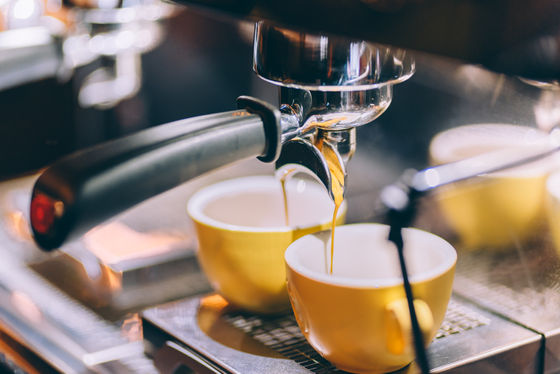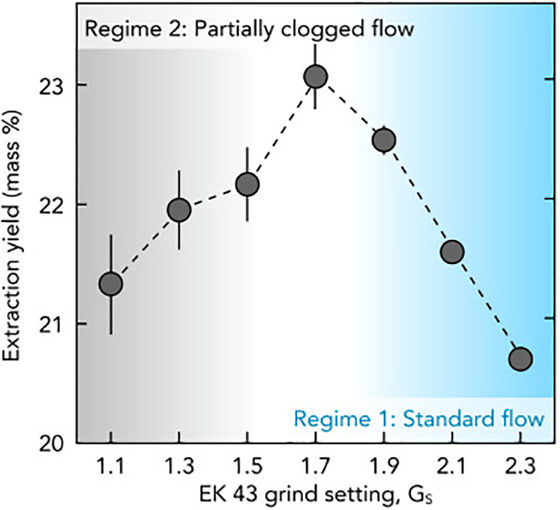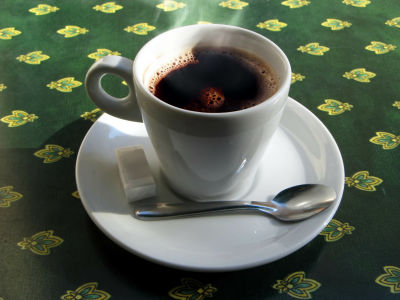What are the results of mathematicians and active baristas scientifically deriving the 'most delicious and efficient espresso'?

by
Espresso made with finely ground coffee beans is the most popular way to drink coffee in Italy and France. Mathematicians and active baristas who have scientifically considered such espresso have elucidated how to make the most delicious and efficient espresso.
Systematically Improving Espresso: Insights from Mathematical Modeling and Experiment: Matter
https://www.cell.com/matter/fulltext/S2590-2385(19)30410-2
Researchers brew a formula for consistent espresso and industry savings | EurekAlert! Science News
https://www.eurekalert.org/pub_releases/2020-01/uoo-rba012020.php
Materials Scientists Learn We've Been Brewing Espresso All Wrong-VICE
https://www.vice.com/en_us/article/884q8v/materials-scientists-learn-weve-been-brewing-espresso-all-wrong
`` Many varistors make espresso with too fine and too many coffee beans, so the balance between bitterness and sourness is unpredictable, unreproducible, and inefficient, '' Oregon points out. My name is Christopher Hendon, a computational scientist at the university. Hendon came to this conclusion when he was working with Michael Cameron, a barista at the Australian coffee shop Frysky Goat Espresso, on a project to quantify delicious espresso.

by
Hendon and others initially thought that 'the finer the coffee beans, the more efficient espresso can be made.' This is because the smaller the coffee beans, the greater the area of contact with hot water. However, Mr. Cameron's staff tried to brew espresso while actually changing the way coffee beans were ground.
The following figure is a graph of the experimental results, the vertical axis represents the extraction efficiency of coffee beans, the horizontal axis represents the setting of the professional electric coffee mill EK43 , the more finely the coffee is grinded to the right Means Since the line graph has a peak, it can be seen that if the coffee beans are too finely ground, the efficiency becomes worse.

Mr Cameron commented on this result: 'When grinding coffee beans, coffee beans are divided into' fines 'and' large grains 'of any roughness, but too finely ground the' fines 'become too small. However, the coffee filter will clog and the extraction efficiency will be poor, and if the filter is clogged, the flow of coffee in the espresso machine will be irregular, which will cause variations in taste. ' And talk.
Hendon added, 'When brewing an espresso, you should reduce the use of coffee beans from the standard 20g to 15g and grind more coarsely, and the time required will be from 25 seconds to 7-15 seconds. In addition, the ingredients that contribute to the taste are not extracted, but the components that improve the taste are extracted, so that it is possible to brew a stable and delicious espresso without compromising the coffee density. ' I said.

Mr. Hendon actually asked the local coffee shop Tailored to adopt this brewing method, and the cost of $ 3620 (about 400,000 yen) for one year from September 2018 to September 2019 Was saved. Converting this to 124 million cups of espresso consumed daily in the United States will save $ 1.1 billion (about 120.5 billion yen) annually.
`` It was a surprise when Hendon came to our store and told us that if we reduced our coffee beans and made them coarser, we could quickly serve coffee and save money, '' said Tailored owner Brian Sung. Thanks to him, my light roasted espresso tasted better and I was able to bring out a sweeter flavor than when I was finely grinding it. '
Related Posts:
in Food, Posted by log1l_ks







